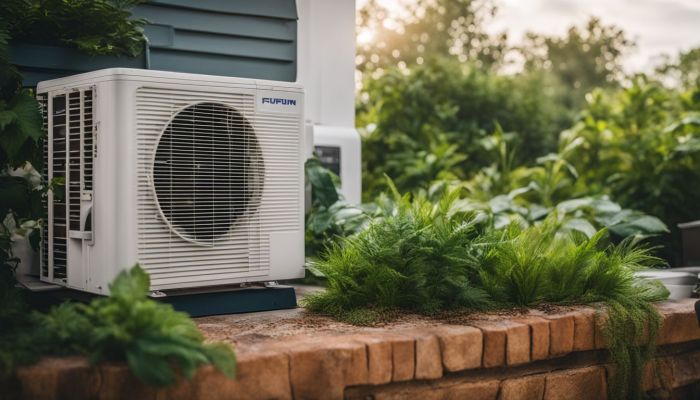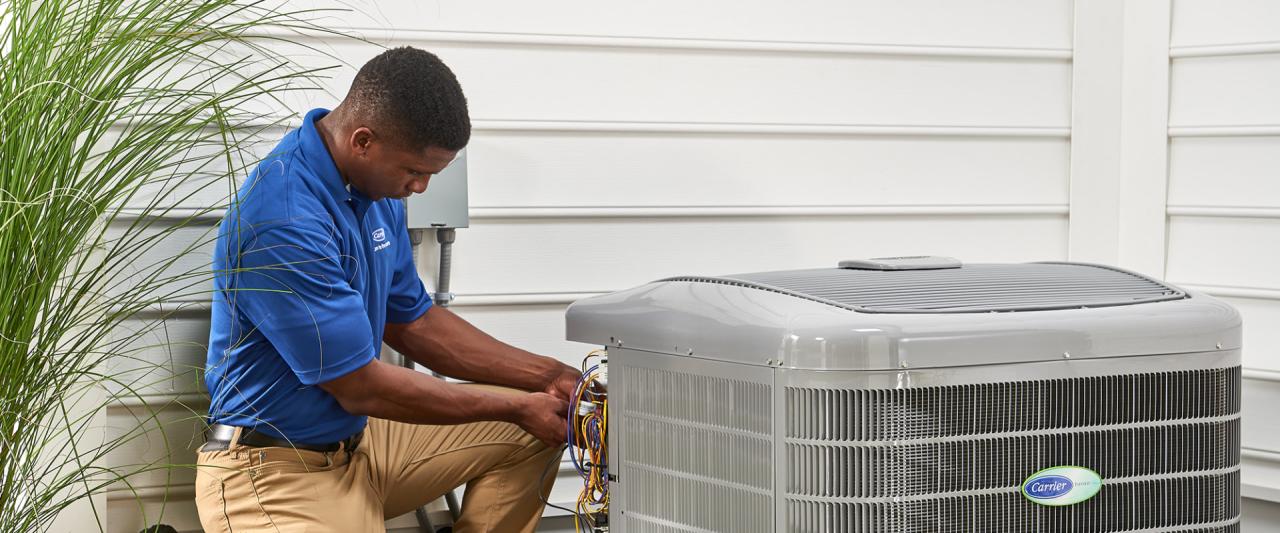
Starting with When to Replace Your Air Conditioner: Expert Advice, this introductory paragraph aims to provide a captivating overview of the topic, drawing readers in with valuable insights and information.
The following paragraph will delve deeper into the details and key points related to the subject matter.
Signs Your Air Conditioner Needs Replacement

When your air conditioner starts showing signs of wear and tear, it may be time to consider replacing it. Here are some common signs that indicate the need for a new AC unit:
Common Signs of Replacement
- Age: Air conditioners typically last around 10-15 years. If your unit is reaching or exceeding this age range, it may be time to replace it.
- Frequent Breakdowns: If your AC is constantly breaking down and requiring costly repairs, it may be more cost-effective to invest in a new unit.
- Decreased Efficiency: As air conditioners age, they become less efficient at cooling your home, leading to higher energy bills. If you notice a significant increase in your energy costs, it could be a sign that your AC is on its last legs.
- Strange Noises or Odors: Unusual noises or odors coming from your AC unit can indicate underlying issues that may warrant a replacement.
- Poor Air Quality: If your air conditioner is no longer effectively filtering and circulating clean air, it could be time for a new unit to improve indoor air quality.
Benefits of Replacing Your Air Conditioner
Replacing your air conditioner with a newer model comes with several advantages that can improve your overall comfort and energy efficiency.
Energy Efficiency Comparison
- New air conditioning units are designed to be more energy-efficient compared to older models. They utilize advanced technology and modern features to consume less energy while providing the same level of cooling.
- Older units tend to lose efficiency over time due to wear and tear, resulting in higher energy bills. Upgrading to a new AC can lead to significant cost savings in the long run.
Improved Indoor Air Quality and Comfort
- A new air conditioner can help enhance indoor air quality by effectively filtering out dust, pollen, and other allergens. This is especially beneficial for individuals with respiratory issues or allergies.
- Modern AC units also offer better temperature control and humidity regulation, creating a more comfortable environment in your home. You can enjoy consistent cooling without experiencing temperature fluctuations.
Factors to Consider Before Replacing Your Air Conditioner
Before making the decision to replace your air conditioner, there are several important factors to consider. These factors can impact the efficiency, cost, and overall effectiveness of your new unit.
Choosing the Right Size and Type of Air Conditioner
One of the key considerations when replacing your air conditioner is selecting the right size and type for your space. An air conditioner that is too small will struggle to cool your property efficiently, while one that is too large will cycle on and off frequently, leading to increased energy bills.
It is essential to have a professional assess your property to determine the appropriate size and type of unit for optimal performance.
Impact of Environmental Factors
Environmental factors such as climate, humidity levels, and air quality can significantly impact the decision to replace your air conditioner. If you live in a region with extreme temperatures or high humidity, you may require a more powerful and energy-efficient unit to maintain comfort levels.
Additionally, poor air quality can put strain on your air conditioner, leading to decreased efficiency and increased maintenance costs. Considering these environmental factors is crucial when choosing a new air conditioning system.
Process of Replacing an Air Conditioner

When it comes to replacing an air conditioner, there are several crucial steps involved in the process, from assessment to installation. Whether you choose to hire professional HVAC services or opt for a DIY replacement, understanding the process can help you make an informed decision.
Additionally, regular maintenance after installing a new AC unit is essential to ensure optimal performance and longevity.
Assessment and Planning
Before replacing your air conditioner, it is important to assess your current unit's condition and determine the appropriate size and type of the new AC system. This step involves evaluating your home's cooling needs, considering factors such as square footage, insulation, and ductwork.
Planning ahead will help you select the right air conditioner for your space.
Removal of Old Unit
Once you have chosen a new air conditioner, the next step is to remove the old unit. This process may involve disconnecting the existing system, disposing of the components safely, and preparing the installation area for the new AC unit.
Proper removal of the old unit is crucial to ensure a smooth installation process.
Installation of New Air Conditioner
Installing a new air conditioner requires precision and expertise to ensure optimal performance. Whether you decide to hire professional HVAC services or attempt a DIY installation, following the manufacturer's instructions is key. Proper installation includes connecting the new unit to the electrical system, testing for efficiency, and making any necessary adjustments.
Professional HVAC Services vs. DIY Replacement
While DIY replacement may seem cost-effective, hiring professional HVAC services can save you time and ensure proper installation. HVAC professionals have the necessary skills and experience to handle the complexities of air conditioner replacement, reducing the risk of errors and ensuring optimal performance.
Importance of Regular Maintenance
After replacing your air conditioner, regular maintenance is essential to keep the system running smoothly. This includes changing air filters, cleaning components, checking for leaks, and scheduling annual tune-ups. By maintaining your new AC unit properly, you can prolong its lifespan and avoid costly repairs in the future.
Last Recap
Concluding this discussion on When to Replace Your Air Conditioner: Expert Advice, the outro paragraph will offer a concise summary and closing thoughts that leave a lasting impact on the readers.
FAQ Guide
What are some common signs that indicate the need to replace an air conditioner?
Common signs include strange noises, insufficient cooling, frequent breakdowns, and high energy bills.
What are the benefits of upgrading to a new air conditioning system?
Upgrading can lead to improved energy efficiency, better indoor air quality, and enhanced cooling performance.
What factors should be considered before replacing an air conditioner?
Key factors include budget constraints, property size, energy efficiency requirements, and environmental impact.
What is the process involved in replacing an air conditioner?
The process includes assessment, selection of the right unit, professional installation, and regular maintenance for optimal performance.












